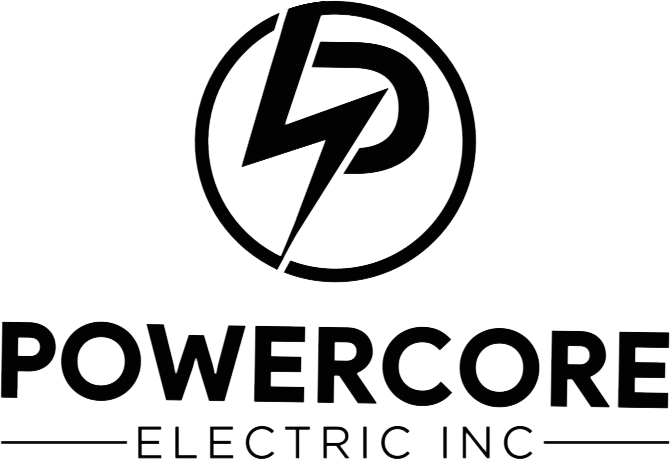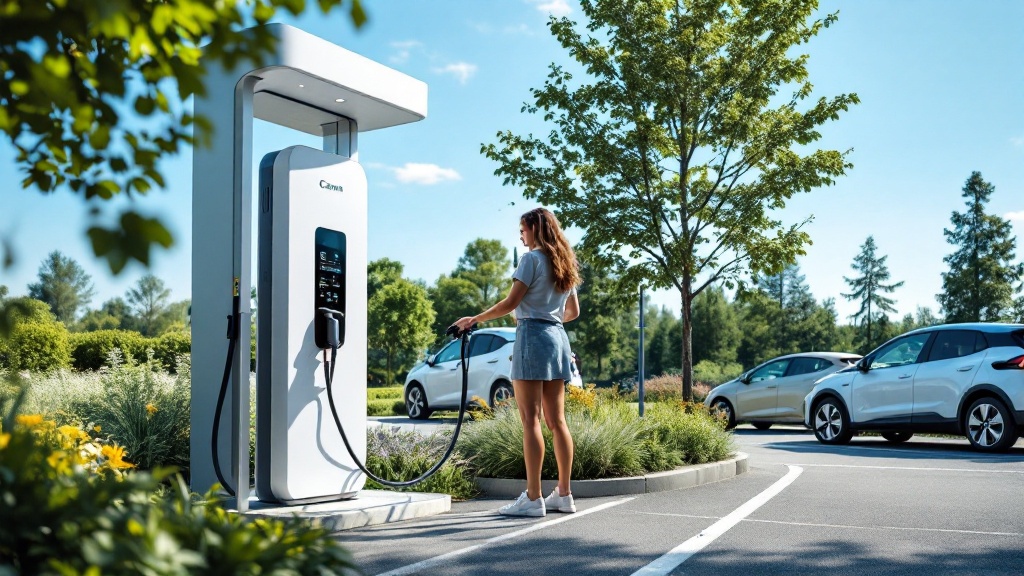Introduction
Considering the shift towards electric vehicles, many homeowners are contemplating the installation of EV charging stations at home. However, understanding the financial implications can be overwhelming. From the initial investment in the charging unit to the costs associated with installation and ongoing electricity usage, there are several factors to consider.
This article delves into the various expenses involved in setting up an EV charging station, including insights into potential savings through rebates and incentives that can significantly offset these costs. With the right information and support, homeowners can make informed decisions that not only fit their budgets but also contribute to a more sustainable future.
Understanding the Costs of Electric Vehicle Charging Stations
When you’re considering setting up an electric vehicle (EV) refueling point at home, it’s essential to know how much is an electric charging station and the expenses involved. You’ll want to consider a few key costs, such as:
- How much is an electric charging station
- Setup fees
- Any necessary electrical upgrades
When considering the cost of a Level 2 charging station, you might wonder how much is an electric charging station, as you can anticipate spending between $400 and $2,000 for the unit, not including setup.
The installation expenses can also vary quite a bit depending on the specifics of your setup, which is relevant when considering how much is an electric charging station, typically ranging between $300 and $1,500. It’s also prudent to consider ongoing operational expenses such as electricity consumption and maintenance when assessing how much is an electric charging station, as these costs can accumulate over time. Notably, homeowners like Michael and Marie save £300 per year compared to refueling an internal combustion engine (ICE) vehicle, highlighting the long-term financial benefits of switching to an EV.
Furthermore, the EPA’s suggested new emissions criteria indicate a wider dedication to decreasing CO emissions, making investments in EV infrastructure more pertinent than ever. Moreover, the Inflation Reduction Act enacted by President Biden in August 2022 offers up to $7,500 in rebates to EV purchasers, which could greatly reduce expenses for setup. Powercore Electric Inc. provides professional installation services for EV power systems and solar energy solutions, assisting you in optimizing your investment in clean energy.
For more information or to schedule a consultation, contact us at ryan.serrano@powercoreinc.net or call (916) 699-8778. Comprehending these expenses and incentives, including how much is an electric charging station, can assist you in making a well-informed choice that suits your budget and lifestyle.
Key Factors Affecting the Cost of EV Charging Stations
When considering how much is an electric charging station, several key factors come into play regarding the expense of installation. First up is the type of charger you opt for. Level 1 chargers tend to be the budget-friendly option, but keep in mind they are much slower compared to the more robust Level 2 chargers, which are generally better suited for home use.
Choosing the right charger is vital to not just your wallet but also your everyday convenience, especially when considering how much is an electric charging station. This aspect can dramatically affect how much is an electric charging station installation. If your electrical panel is situated far from where you plan to install the charger, you might find yourself facing higher wiring expenses, leading you to wonder how much is an electric charging station.
It’s always a good idea to assess your home’s layout early in the process. Additionally, don’t overlook local regulations and permits. These can add extra dollars to your overall costs, so checking in with your local authority on how much is an electric charging station before you dive in is a smart move. As Garrett Fitzgerald, a Senior Director in Transportation Electrification, states, comprehending these factors can be crucial when organizing your power supply location.
Keep in mind, the aim is to discover a resolution that accommodates both your requirements and your financial plan, especially when considering how much is an electric charging station.
At Powercore Electric, we focus on the comprehensive setup process for EV power sources, beginning with a detailed site evaluation to identify the ideal placement and any required electrical enhancements. Our group guarantees that every setup complies with safety and regulatory criteria, accompanied by thorough testing to ensure optimal performance.
In addition to electric vehicle power sources, Powercore Electric also provides solar panel setups and battery backup services, delivering a complete solution for your energy requirements. Property owners may gain from local incentives and rebates for solar panel setup, making renewable energy adoption more attainable and economical.
In the wider context of EV infrastructure, it’s significant that SAIC plans to set up 3,000 battery swapping facilities by 2025, emphasizing the rising investment in EV fueling solutions. Furthermore, Qmerit has set up more than 450,000 EV power sources and is rated #1 in customer contentment, highlighting the significance of selecting a trustworthy service provider.
Finally, take into account how insurance expenses for EVs can also influence your overall financial situation. For instance, the average monthly insurance for a Tesla Model Y is around $261, which can be a significant factor for potential buyers. This insight emphasizes the need for more affordable insurance options for EVs, as higher rates may deter potential buyers.
Taking these considerations into account, along with our reliable services at Powercore Electric, will help you navigate the installation process more smoothly and ultimately lead to a more satisfying EV ownership experience, particularly when you consider how much is an electric charging station. For more information on our services or to schedule a consultation, please contact Powercore Electric at Ryan.Serrano@powercoreInc.net or call us at (916) 699-8778.
Exploring Different Types of Electric Vehicle Charging Stations
When it comes to EV power sources, you’ll encounter three primary types: Level 1, Level 2, and DC Fast. Level 1 chargers use a standard 120-volt outlet, making them ideal for overnight recharging; however, they can take up to 20 hours to provide a full charge. If you’re looking for something quicker, Level 2 chargers operate on a 240-volt outlet and can fully charge most electric vehicles in just 4 to 8 hours, which is perfect for home use.
On the other hand, DC Fast Charging stations are designed for rapid refueling and are typically found at commercial locations. While they significantly reduce power-up time, one must consider how much an electric charging station can come with a higher price tag. Your selection truly relies on your driving patterns and how you intend to integrate power replenishment into your daily routine.
As the Australian Government observes, investment in EV infrastructure is increasing, with AUD 39.3 million designated to construct EV chargers along national highways, reflecting a broader commitment to improving access to electric vehicle refueling. Furthermore, by the end of 2025, each HDV power point must incorporate at least one charger with a minimum output of 350 kW, signifying a transition towards quicker power solutions. Additionally, innovative developments such as Electric Road Systems (ERS) are being explored, which allow vehicles to charge while driving, promising to revolutionize the way we think about EV infrastructure.
At Powercore Electric Inc., we provide a variety of services, including the setup of solar panels and battery backups along with EV support points. Our solar panels can significantly lower your electricity expenses, while battery backups guarantee you have power even during outages, enhancing the efficiency of your EV power supply. When considering a comprehensive package, it’s important to evaluate how much is an electric charging station, as our installation services for EV power supplies typically range from $1,200 to $2,500, depending on the specific requirements and equipment selected.
If you’re ready to make your home more eco-friendly, feel free to reach out to us at ryan.serrano@powercoreinc.net or call (916) 699-8778. With the appropriate power source and assistance from Powercore Electric, you can guarantee your electric vehicle is always prepared to hit the road.
Maximizing Savings: Rebates and Incentives for EV Charging Stations
For homeowners seeking to set up EV power sources, utilizing available rebates and incentives can greatly lower expenses. Powercore Electric offers customized EV power solutions that not only deliver significant savings but also promote a sustainable future. Our EV charging stations come with features like fast charging capabilities and smart technology integration, ensuring you have the best equipment for your needs.
States such as Wyoming and South Carolina are at the forefront, providing significant rebates for the setup of Level 2 chargers. In Wyoming, customers can benefit from up to $500 when they purchase and install a qualified Level 2 EV charger, as noted by Ruth Celestin, who emphasizes that customers can receive up to $500 for a [[[new EV charger](https://iea.org](https://iea.org](https://iea.org/reports/global-ev-outlook-2024/trends-in-electric-vehicle-charging)/reports/global-ev-outlook-2024/trends-in-electric-vehicle-charging)/reports/global-ev-outlook-2024/trends-in-electric-vehicle-charging) and up to $500 more for any wiring upgrades. This dual incentive can ease the financial burden of installation.
Meanwhile, Santee Cooper in South Carolina offers a rebate of up to $250, which has significantly motivated residents to invest in EV infrastructure, aiding the rise of electric vehicle adoption in the community.
Utility companies also contribute to these savings; for instance, Black Hills Energy customers in Wyoming can qualify for the same $500 rebate when they purchase and install an approved Level 2 device, reinforcing the importance of investing in qualified equipment. California is another state with robust programs, offering significant rebates for EV fueling equipment. To ensure you’re making the most of these financial incentives, it’s wise to regularly check local resources and government websites, as these programs are continually updated and subject to change.
By leveraging these opportunities, homeowners can not only save money but also support the transition to cleaner energy.
Ready to make the switch to electric vehicles? Contact Powercore Electric today at ryan.serrano@powercoreinc.net or call (916) 699-8778 to learn more about our EV power solutions and how we can assist you in embracing a cleaner, more sustainable future!
Operational Costs: What to Expect After Installation
Once your electric vehicle power station is operational, it’s crucial to consider how much an electric charging station will cost for future ongoing expenses. The biggest expense you’ll encounter is electricity, which can fluctuate greatly depending on your local rates and how much is an electric charging station, as well as how often you charge your vehicle. Typically, you can anticipate how much is an electric charging station to completely power an electric vehicle to vary from $1 to $2, affected by the vehicle’s battery capacity and the electricity prices in your region.
For context, the U.S. average regular gas price was $3.060 for November 19, 2024, illustrating the cost-effectiveness of charging an EV compared to traditional fueling methods. It’s also prudent to consider minimal maintenance expenses, which may include occasional inspections or repairs. Understanding these ongoing expenses, including how much is an electric charging station, will empower you to manage your finances effectively as a proud electric vehicle owner. As you consider the advantages of EVs, think about how solar panels can complement your energy strategy.
By harnessing renewable energy, you can further reduce your electricity costs and rely less on the grid. Optimal battery selections for residential energy storage can improve this setup, enabling you to store surplus energy produced during the day for night use, making your home even more self-sufficient.
Additionally, it’s essential to ensure a thorough setup process for your EV charging station, which Powercore Electric can assist with. Our site assessment, electrical upgrades, accurate setup, and thorough testing ensure that your system runs smoothly and efficiently. For detailed guidance, refer to our user manual, which outlines step-by-step instructions for installation, including essential troubleshooting tips to ensure optimal performance.
With the increasing adoption of EVs—forecasted to surge thanks to a significant rise in lithium-ion battery manufacturing capacity, from 300 GWh in 2021 to an expected 3.2 TWh by 2030—now is a great time to embrace this sustainable choice.
The number of publicly accessible chargers in Europe increased by 30% in 2021, showcasing the growing infrastructure that supports EV adoption. As Kurt Woock from NerdWallet points out,
With DC fast charging, you can add hundreds of miles of range in 30 minutes or less in some cases — helpful if you’re in a hurry or on a road trip.
This efficiency not only enhances your driving experience but also plays a part in your overall cost management.
Conclusion
Understanding the costs associated with installing an EV charging station is crucial for homeowners considering this investment. From the initial purchase of the charging unit to installation and ongoing operational expenses, several factors will influence the overall financial commitment. Homeowners can expect to see significant long-term savings, particularly when leveraging available rebates and incentives, which can alleviate the upfront costs and make the transition to electric vehicles more manageable.
As the demand for electric vehicles continues to rise, the importance of choosing the right type of charger and considering installation factors cannot be overstated. Level 2 chargers, while more expensive, offer the convenience and speed that align with modern lifestyles. Local regulations and potential insurance costs are additional considerations that can impact the overall expense, making it essential to conduct thorough research before proceeding.
By taking advantage of state and utility incentives, homeowners can not only make a more economical choice but also contribute to a more sustainable future. The transition to electric vehicles is not just about adopting new technology; it represents a commitment to reducing carbon footprints and embracing cleaner energy solutions. With the right knowledge and support, installing an EV charging station can be a rewarding step towards a greener lifestyle.


